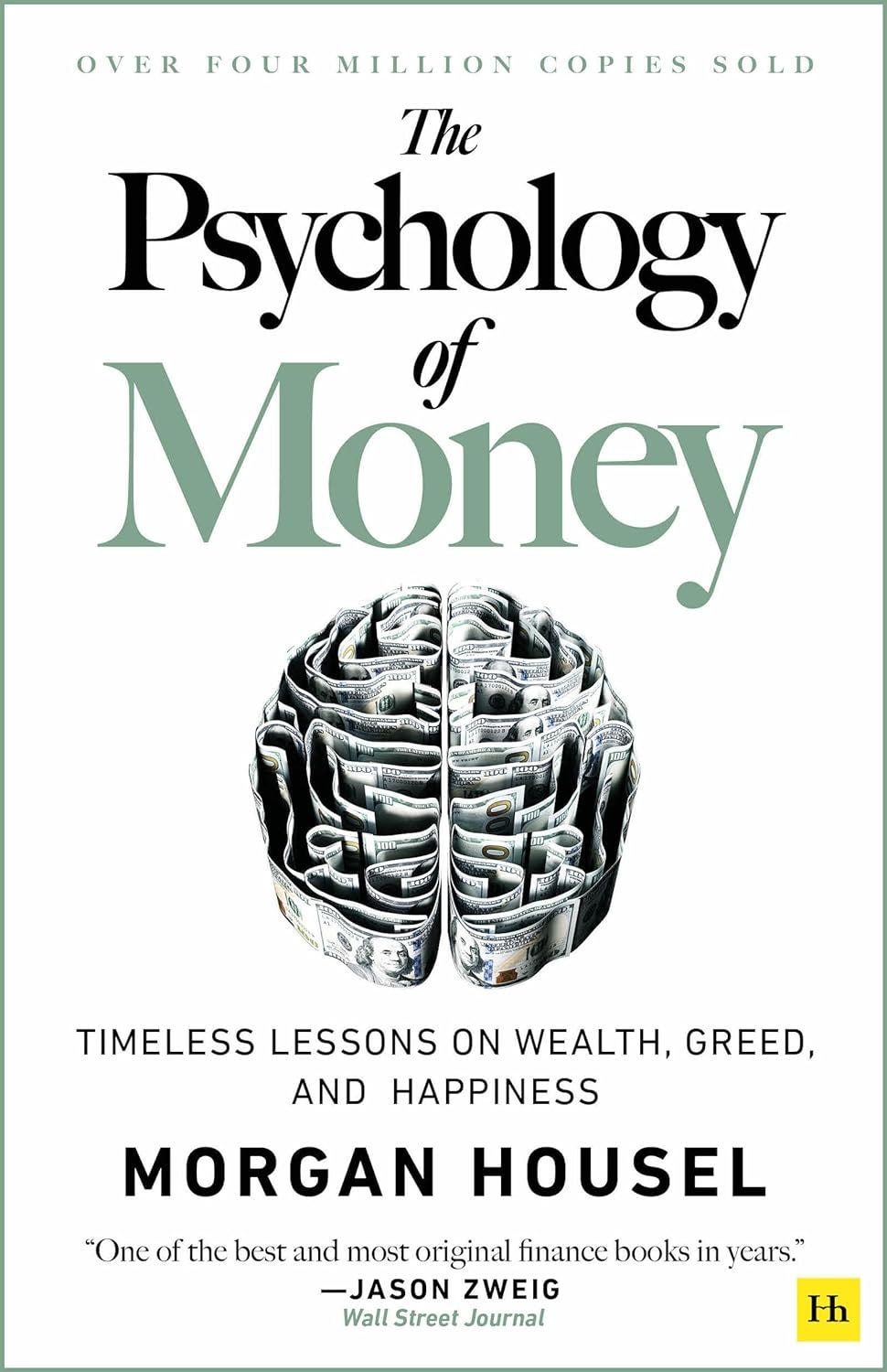Book Freak 145: The Psychology of Money
Mastering your behavior to build lasting wealth

The Psychology of Money by Morgan Housel, argues that managing money is more about mastering behaviors and emotions than crunching numbers. It encourages readers to be reasonable with money rather than purely rational, and to focus on room for error, flexibility, and long-term compounding. It makes the case that money is often counterintuitive, not always rational, and learning psychology is key to making sound financial choices.
Key themes include understanding how past experiences shape financial behavior, avoiding envy and keeping up with the Joneses, focusing on what you can control like savings rate rather than investment returns, and aiming for financial freedom and independence.
Here are four pieces of advice from the book:
On room for error
“A good rule of thumb for a lot of things in life is that everything that can break will eventually break. So if many things rely on one thing working, and that thing breaks, you are counting the days to catastrophe. That’s a single point of failure… The biggest single point of failure with money is a sole reliance on a paycheck to fund short-term spending needs, with no savings to create a gap between what you think your expenses are and what they might be in the future. ”
On compounding
“Compounding only works if you can give an asset years and years to grow. It’s like planting oak trees: A year of growth will never show much progress, 10 years can make a meaningful difference, and 50 years can create something absolutely extraordinary.”
On being reasonable about money
“Aiming, at every point in your working life, to have moderate annual savings, moderate free time, no more than a moderate commute, and at least moderate time with your family, increases the odds of being able to stick with a plan and avoid regret than if any one of those things fall to the extreme sides of the spectrum.”
On the hidden nature of wealth
“Wealth is what you don’t see. It’s income not spent. Wealth is the nice cars not purchased. The diamonds not bought. The watches not worn, the clothes forgone and the first-class upgrade declined. Wealth is financial assets that haven’t yet been converted into the stuff you see. That’s not how we think about wealth, because you can’t contextualize what you can’t see.”
11/21/23





